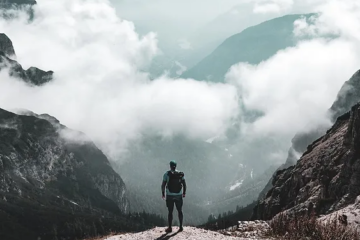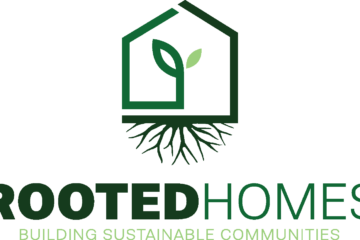 Fifteen years ago the State of Oregon hired me to start nine “peer advisory board” organizations for small business owners in various communities around our state. Over the course of the following two years I coaxed 60,000 miles out of my trusty Jeep, met a lot of interesting folks, and did what I was hired to do. (Check out www.opp-knocks.org to understand the Bend-based organization that I was asked to replicate.)
Fifteen years ago the State of Oregon hired me to start nine “peer advisory board” organizations for small business owners in various communities around our state. Over the course of the following two years I coaxed 60,000 miles out of my trusty Jeep, met a lot of interesting folks, and did what I was hired to do. (Check out www.opp-knocks.org to understand the Bend-based organization that I was asked to replicate.)
I thoroughly enjoyed the gig, and had the opportunity to observe, and for a short time participate in, the business ecosystems of those nine communities/cities. (Yes, Portland was one of them). During my stay I would get to know the organizations that drove those ecosystems; i.e. the Chambers, the banks, the Small Business Development Centers, the economic development folks, etc.
I quickly learned that there were varying degrees of entrepreneurial ecosystem development within those communities, ranging from minimal in some to none in others. I’m sure those “varying degrees” have shifted since the early 2000’s, especially since our state’s economy has become more entrepreneur-based. Here in Bend, for instance, our entrepreneurial ecosystem was pretty much non-existent in 2000, today it is advanced. (Or so says I anyway.) As a result, we have spawned literally hundreds of vibrant entrepreneurial businesses in tech, bio-science, outdoor, food, micro-brewery and UAV industries.
I started thinking about what we’ve done here in Bend and wondering what the rest of the state is doing in the way of improving their ecosystem to be more friendly to business owners and especially to those entrepreneurs who are building the kind of businesses that create jobs. From my time spent in those communities I know that some of them have the necessary enthusiasm and passion to develop a successful ecosystem; I have learned however, that a “bias to action” culture is what is usually missing when a community’s infrastructure fails to keep up with its needs. (Note: Since “bias to action” is a key entrepreneurial ingredient, it’s no surprise that this trait transfers into the developing of a vibrant entrepreneurial-friendly culture.)
What follows is a 30,000 foot view of what Bend, my adopted home community, has done to develop what I believe is today an “advanced” entrepreneurial ecosystem. The purpose of this exercise is to 1) give the reader a best-practices inventory in the event he/she wants to replicate one or more of Bend’s ecosystem enhancements and 2) to get a statewide conversation going on the ecosystem topic, resulting (hopefully) in a step-up of entrepreneur-friendly ecosystems.
In order to explain what we’ve done in Bend, we must first define the phrase “entrepreneurial ecosystem.” There are really two verticals to Bend’s ecosystem; I’m assuming this is the case for Oregon’s larger communities as well. The first vertical is the ecosystem that includes our “Traditional Business” sector; i.e. those mature community businesses that created and developed Bend in the 90’s and earlier. Such businesses as Bend’s developers, auto dealers, attorneys, CPA’s, retail merchants and utility businesses come to mind. The service providers that support this Traditional Ecosystem include the Chamber of Commerce, the Small Business Development Center, the Rotary Clubs, Opportunity Knocks, the Economic Development folks, and the City of Bend’s Economic Development Advisory Board.
The second vertical is the ecosystem that includes what we call our “New Economy” business sector. These are those businesses whose customers are located somewhere other than Bend; in economic development jargon they’re known as “traded-sector” businesses. Our tech, bio-science, outdoor, and micro-brewery businesses come to mind, all four of which are burgeoning sectors today.
Listed below is a compilation of the entrepreneurial ecosystem enhancements Bend has made since the year 2000. With the exception of Opportunity Knocks, NONE of these organizations existed at the turn of the century.
- Bend Venture Conference: The largest V.C. gathering in Oregon and the Pacific NW.
- Cascade Angels: An organized and active alliance of angel investors (=$ for company equity).
- Seven Peaks Venture: Bend’s home-based Venture Fund.
- Stable of Experts: 125 current and past business experts offering free advice.,
- Bend Venture Catalyst: A position that supports and fosters our New Economy ecosystem.
- Pub Talks: A monthly community-wide meetup that includes a keynote speaker, funding pitches, and super-serious networking, to oftentimes a SRO crowd of 300.
- Opportunity Knocks (OK): OK features twenty teams of “Peer Advisory Board” members assisting 175 business owners & entrepreneurs.
- Key Industry Coordinator: A person who helps organize and coordinate the New Economy businesses in four of Bend’s eight-or-so established and emerging active business clusters; Tech, Bio-Science, Outdoor and Specialty Food Products.
- Tech Alliance of Central Oregon: A Bend-based organization formed to serve the region’s Bend’s tech entrepreneurs.
- Oregon Outdoor Alliance: An organization formed to serve Bend’s outdoor-industry businesses.
And that’s not all. There’s also the Bend Bio-Science Consortium, Central Oregon Research Coalition, StartupBend, Techspace Bend, Founders Pad(tech accelerator), Bend Outdoor Worx (outdoor accelerator), BendPoly, Looking Forward, HiDec, Bend Economic Development Advisory Board (BEDAB), BendTECH, and probably more.
In April of 2014, a friend (SJ Camarata) and I traveled to Boulder, Colorado, armed with a dossier of questions designed to better understand what makes their entrepreneurial ecosystem tick. We weren’t interested in becoming another Boulder, but rather we wanted to learn what ecosystem enhancements they had implemented that we could replicate. In the course of our two-day visit, we interviewed a dozen or so of their business leaders and quickly discovered a similar bias-to-action culture that pervaded their business community.
Our tangible findings? In addition to validating a number of ecosystem enhancements that Bend had implemented, we also learned a startling fact; our entrepreneurial ecosystem had significantly more moving parts than theirs. Boulder, for instance, didn’t have a Venture Conference, a Stable of Experts or an Opportunity Knocks.
The primary difference however, was in scale; Boulder’s primary VC fund had a $250 M portfolio while Bend’s is somewhere in the $25 M range. Boulder, thanks to a ten-year head start, also had an active underground of high rolling angel-entrepreneurs who had enjoyed successful exits from their businesses and were now involved in kick-starting and abetting the next generation of their startups. In short, they have created an active, virtuous cycle.
So, how does a community go about creating its own bias-to-action culture with the hopes of developing a vibrant entrepreneurial ecosystem? In Bend the catalyst was our super-active Economic Development of Central Oregon organization (EDCO, a 501 (c) 6), which in turn flourished because it had visionary management and a high level of community-wide support; support which came from local citizens, businesses and governments getting behind the ecosystem-development concept. “Getting behind”, in this case, can be defined as volunteering time and writing fat checks. EDCO also has an entrepreneurial culture itself; a culture that allows them to launch new support organizations, but, at the same time, maintain their autonomy, as evidenced by a lack of need to control what they create.
In Boulder the catalyst was – and is – a nonprofit called Techstars. In your community it could be an independent (non-government) economic development organization like EDCO, it could be a group of current or retired entrepreneurs who are looking for an opportunity to get their juices flowing again or it could be an organic group of citizens who simply want to better their community by enhancing their business ecosystem.
Or, it could be one visionary zealot, someone who is moved to make a difference and has a large dose of bias-to-action energy in his or her DNA. In Bend that person was Roger Lee, in Boulder it was Brad Feld.
If you’re interested in creating an entrepreneurial ecosystem in your own community, one of Bend’s local entrepreneurs, James Gentes, has created an online template to help his clients replicate some of what Bend has done, most specifically around the concept of forming industry clusters within the Tech sector. Check out his StartupCommunity.org for a framework for building and measuring your own startup community.
About the Author: Jim Schell is a transplanted small business and entrepreneurial junkie who has watched Bend’s business ecosystem grow over the last 20 years. He shares his thoughts on Bend’s business and entrepreneurial ecosystem in the hopes it might help other communities hasten the development of their own entrepreneur-friendly ecosystem. He can be contacted at jim.schell5@gmail.com.





